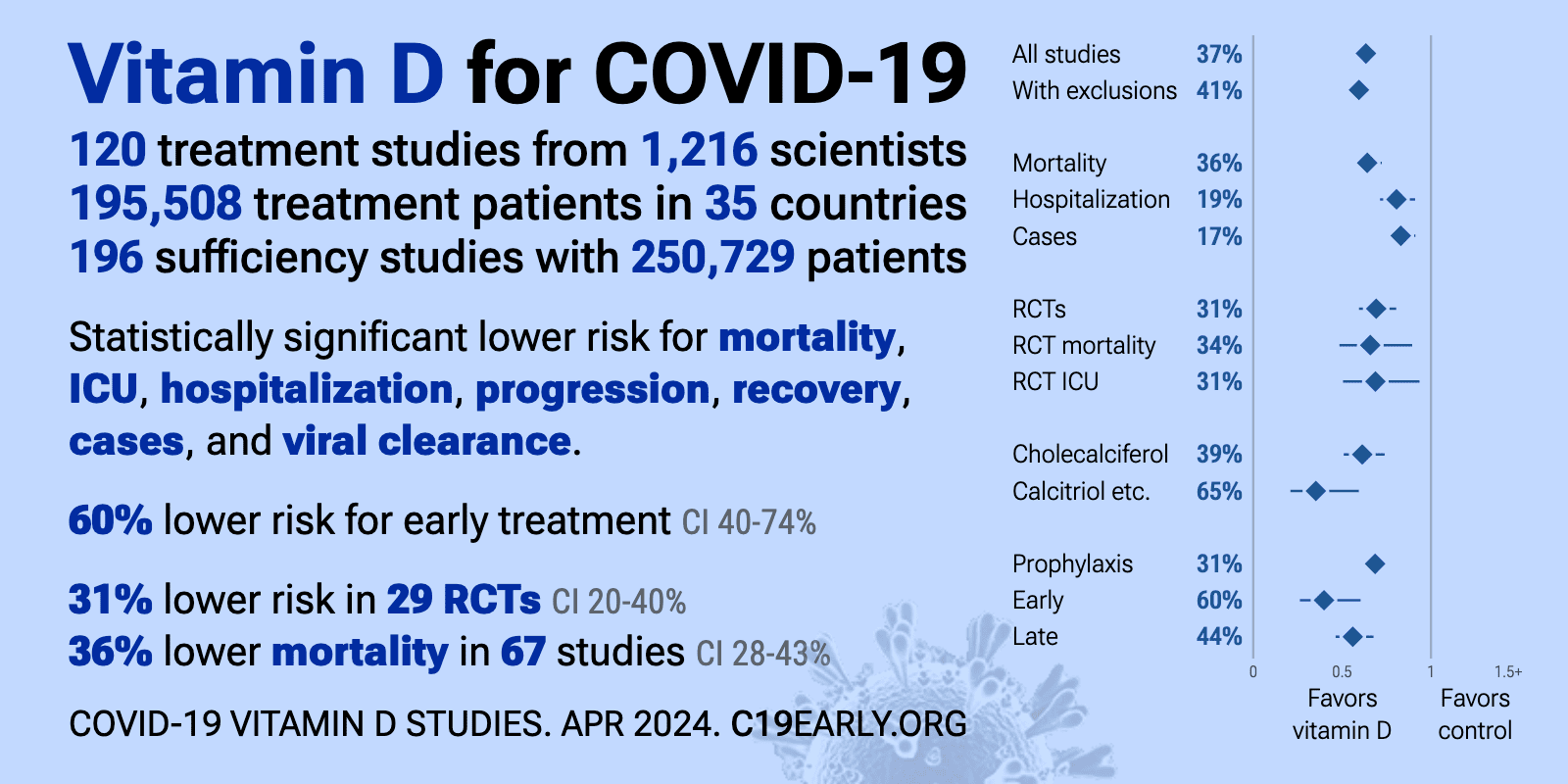Vaccinations did not stop COVID (68 studies) – meta-analysis
Long-term effectiveness of COVID-19 vaccines against infections, hospitalisations, and mortality in adults: findings from a rapid living systematic evidence synthesis and meta-analysis up to December, 2022
Lancet Respir Med . 2023 May;11(5):439-452. doi: 10.1016/S2213-2600(23)00015-2
Nana Wu 1, Keven Joyal-Desmarais 1, Paula A B Ribeiro 2, Ariany Marques Vieira 1, Jovana Stojanovic 3, Comfort Sanuade 1, Doro Yip 2, Simon L Bacon 4
1 META Group, Montreal Behavioural Medicine Centre, CIUSSS du Nord-de-l'Île-de-Montréal, Montreal, QC, Canada; Department of Health, Kinesiology, and Applied Physiology, Concordia University, Montreal, QC, Canada.
2 META Group, Montreal Behavioural Medicine Centre, CIUSSS du Nord-de-l'Île-de-Montréal, Montreal, QC, Canada.
3 META Group, Montreal Behavioural Medicine Centre, CIUSSS du Nord-de-l'Île-de-Montréal, Montreal, QC, Canada; Canadian Agency for Drugs and Technologies in Health, Ottawa, ON, Canada.
4 META Group, Montreal Behavioural Medicine Centre, CIUSSS du Nord-de-l'Île-de-Montréal, Montreal, QC, Canada; Department of Health, Kinesiology, and Applied Physiology, Concordia University, Montreal, QC, Canada. Electronic address: simon.bacon@concordia.ca.

Background: Synthesising evidence on the long-term vaccine effectiveness of COVID-19 vaccines (BNT162b2 [Pfizer-BioNTech], mRNA-1273 [Moderna], ChAdOx1 nCoV-19 [AZD1222; Oxford-AstraZeneca], and Ad26.COV2.S [Janssen]) against infections, hospitalisations, and mortality is crucial to making evidence-based pandemic policy decisions.
Methods: In this rapid living systematic evidence synthesis and meta-analysis, we searched EMBASE and the US National Institutes of Health's iSearch COVID-19 Portfolio, supplemented by manual searches of COVID-19-specific sources, until Dec 1, 2022, for studies that reported vaccine effectiveness immediately and at least 112 days after a primary vaccine series or at least 84 days after a booster dose. Single reviewers assessed titles, abstracts, and full-text articles, and extracted data, with a second reviewer verifying included studies. The primary outcomes were vaccine effectiveness against SARS-CoV-2 infections, hospitalisations, and mortality, which were assessed using three-level meta-analytic models. This study is registered with the National Collaborating Centre for Methods and Tools, review 473.
Findings: We screened 16 696 records at the title and abstract level, appraised 832 (5·0%) full texts, and initially included 73 (0·4%) studies. Of these, we excluded five (7%) studies because of critical risk of bias, leaving 68 (93%) studies that were extracted for analysis. For infections caused by any SARS-CoV-2 strain, vaccine effectiveness for the primary series reduced from 83% (95% CI 80-86) at baseline (14-42 days) to 62% (53-69) by 112-139 days. Vaccine effectiveness at baseline was 92% (88-94) for hospitalisations and 91% (85-95) for mortality, and reduced to 79% (65-87) at 224-251 days for hospitalisations and 86% (73-93) at 168-195 days for mortality. Estimated vaccine effectiveness was lower for the omicron variant for infections, hospitalisations, and mortality at baseline compared with that of other variants, but subsequent reductions occurred at a similar rate across variants. For booster doses, which covered mostly omicron studies, vaccine effectiveness at baseline was 70% (56-80) against infections and 89% (82-93) against hospitalisations, and reduced to 43% (14-62) against infections and 71% (51-83) against hospitalisations at 112 days or later. Not enough studies were available to report on booster vaccine effectiveness against mortality.
Interpretation: Our analyses indicate that vaccine effectiveness generally decreases over time against SARS-CoV-2 infections, hospitalisations, and mortality. The baseline vaccine effectiveness levels for the omicron variant were notably lower than for other variants. Therefore, other preventive measures (eg, face-mask wearing and physical distancing) might be necessary to manage the pandemic in the long term.
📄 Download the PDF from VitaminDWiki
VitaminDWiki – COVID-19 treated by Vitamin D - studies, reports, videos
{include}

- The above image is automatically updated
Meta-analyses of Virus
This list is automatically updated
{category}
VitaminDWiki COVID infections and vaccinations decrease Vitamin D – many studies
{include}
